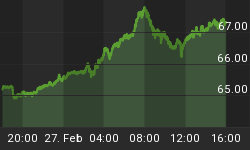There is only one certainty in Ukraine: The energy sector must and will be transformed, and how long this takes will depend on who ends up in the driver's seat and how serious they are about becoming a part of Europe and reducing dependence on Russia. But by then, investors will have missed the boat.
The driving factor for any energy investor in Ukraine is the pricing environment. There is nowhere else in Europe--or some would even argue in the world--where you are going to get significant access to resources and potential resources for the price. Gas is selling at $13.66/Mcf, while it costs $4-$5 to produce and operate. That means producers are netting anywhere between $8 and $9/Mcf.
Whether it likes it or not, kicking and screaming, Ukraine will have to transform its energy sector, if it hopes to see promised IMF money. Kiev will have to start selling off assets and making the industry much more transparent. Greater transparency coupled with an already-favorable gas price environment, will make Ukraine one of the best places to be over the next 5-7 years.
While everyone is now closely watching the campaigns unfold in the run-up to 25 May presidential elections, in the end who wins the presidency--and even the energy ministry--will determine not if, but how fast the country moves to transform its energy sector.
The crucial next step is a psychological one: Ukraine's new leaders must come to the realization that their energy assets, particularly the pipeline system, are not strategic assets, rather they are valuable commercial assets. Privatizing these assets could raise $50 billion.
Right now, the pipeline system is nothing but a conduit for Russian gas into Europe. It could be much more. The pipeline system, and the state-run company that manages it, should be turned into a transparent public company in London, for instance. The sale of 50% of the company could generate sizable profits--half of which could be used to pay down debt to Russia, while the other half could be invested in modernization, turning a potentially valuable assets into a commercially realistic one.
Without the right people in place in the new government, we could perhaps lose a year in getting the necessary reforms in place. And continued talk about the "strategic" nature of these assets could cause investors to lose faith in Ukraine's seriousness about reducing its dependence on Russia. Eventually, it will happen, and what elections will tell us simply is how long it will take.
There are a lot of resources to be developed in Ukraine, and there are also quite a few companies who have assets they cannot development, primarily due to lack of funding or marginal management teams. These companies will now be seeking to transact with larger players.
Historically, the most significant red flag for new investors in Ukraine has been working with the government. It's too early to determine whether that will change. Bureaucracy generally kills deals more than anything, and foreign companies coming in will never be able to understand how the bureaucracy works. The smart investor will employ capital through a Ukrainian private entity to maximize investment dollars. Western management teams, without help from local partners, won't be able to operate in this venue even if they are top-notch managers.
The smart investor will also realize that there is no better time to invest in Ukraine's energy sector. Once it is transformed, the best opportunities will have been seized.
Source: http://oilprice.com/Energy/Energy-General/The-Most-Profitable-Gas-in-the-World.html
By Robert Bensh of Oilprice.com















